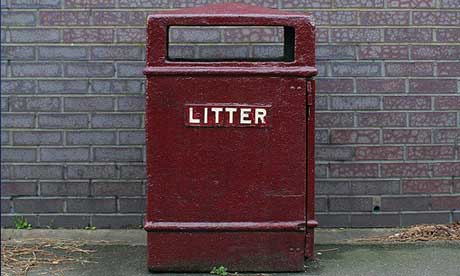
Being a responsible traveller means more than avoiding littering the countryside; a little knowledge and forethought can go a long way
Travel at its best is life-changing; even at its worst it can be life-affirming. We talk of poverty in the West but in parts of Africa, Asia and South America you can see – if you want to – real life-and-death struggles.
The natural reaction of many people is to try to help, and one option is to patch up the locals. Villagers in the Middle Hills of Nepal know that Westerners carry first-aid kits and sometimes the medicaments travellers dish out seem miraculous compared with anything they can get from their local, ill-supplied government health post – or so they often believe. The exotic is often more seductive than the familiar, after all. And the trekker handing out a few antibiotics will feel as if they have helped alleviate some suffering and can continue their holiday with an easy conscience. Or can they?
Is it right for travellers who cannot speak a local language to ‘experiment’ on naive locals? Sometimes perhaps, but let me offer you two stories to illustrate the problems.
When I lived in Kathmandu I worked as a volunteer in a clinic funded by a Swiss charity; care was offered to pilgrims who came into the capital during the winter and slept on the streets. The charity paid an administrator/ interpreter and also supplied medicines; it was staffed by expats or medically qualified visitors.
A young widower came to see us with his two sons; the younger – just 18 months old – was an emaciated, limp, skeletal form weighing just 7kg (an average Western boy of this age weighs 12kg).
This child was grossly malnourished and had profuse diarrhoea. We took the boy, Sano Lama, and his father to Patan hospital where the child was fixed up, ‘rehabilitated’ and sent home a kilo heavier.
The hospital doctors wanted to keep track of their little patient: they have schemes to support needy families and they suspected TB. We helped the family with money, baby food and medicines and Sano Lama started to grow a little.
During a public holiday, the father saw a different European doctor. This doctor told him that, to treat diarrhoea, Sano Lama needed to not eat and take clear fluids. The problem was that although this treatment can help well-nourished European patients with a mild stomach upset, it is disastrous for a malnourished child suffering from dysentery.
When we next saw Sano Lama he had yet another bout of severe diarrhoea and was back down to 7kg. The father never quite managed to return to the hospital and finally Sano Lama died, tipped beyond redemption by the starvation prescribed by the unacclimatised doctor. Even medically qualified visitors might not get it right, but none of us had the cure for Sano Lama’s main diagnosis: poverty.
On another occasion I was walking through a village and I saw a trekker with a girl who had a scabby sore at the corner of her mouth. She was suffering from highly contagious impetigo and the trekker was offering his Savlon antiseptic cream. Impetigo is very common in Nepal where there are plenty of flies and people don’t have ready access to clean bathrooms and soap. The health assistant at the local government health post (who will have had a full year of training) would have known how to treat this.
Health-post staff know about local infections and have a plentiful supply of crystal violet or some other similarly cheap, highly-effective remedy. Savlon cream might be cosmetically nicer but it isn’t effective against impetigo. This trekker probably delayed the child from seeking effective treatment, and delay is likely to make a condition more difficult to clear and might even threaten a child’s eyesight. However, an iodine spray such as Savlon Dry could have been effective.
Visitors can help alleviate suffering though. Skin infections are incredibly common, partially because many Nepalis do not know about microbes and infection. Buy packets of potassium permanganate crystals locally. A few crystals dissolved in a dribble of water can be used to cleanse wounds and dab on scabby, oozing impetigo. One matchbox-sized packet costs a few pence and can be used to treat a battalion.
Explain (through your guide or porter) about the need to keep breaks in the skin clean and also about contagion, then leave a packet of potassium permanganate with the sufferer so they can treat the next outbreak. Say where you bought the packet and how it is the “best medicine”. Tell them it’s cheap and they and their friends can buy it next time they go to town. Getting a local to paraphrase what you are saying is invaluable as it spreads health education beyond your ‘patient’ and their family.
Being a responsible traveller means more than avoiding littering the countryside. It takes a bit of thought and preparation – but if you think before you act, you can make a real difference.